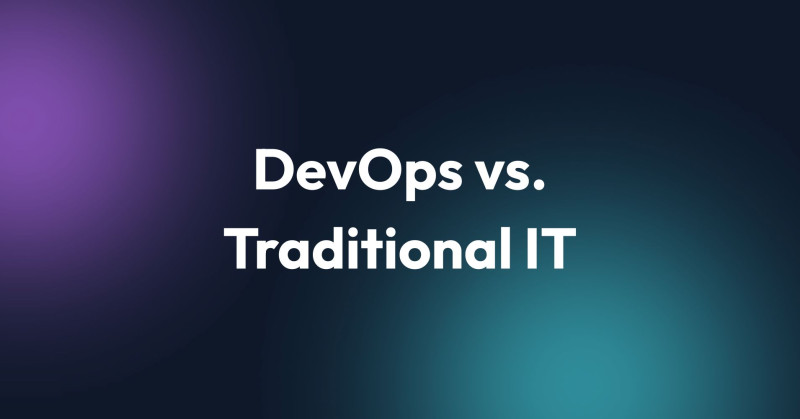Businesses, regardless of their size, are increasingly relying on innovative technological solutions. In this context, the CTO role becomes not only important but even essential for any organization that wants to remain competitive, achieve long-term success and. So let's take a look at the main reasons why the presence of a CTO can be a key factor in creating and strengthening technology strategy and achieving a company's business goals.

Who Is a CTO?
The CTO (Chief Technology Officer), or Chief Technology Officer, is the person who strategically manages and plans a company's technology services and products. Their main task is to direct the organization's technology strategy, oversee technological innovation, product development and manage the technical team. The CTO often focuses on finding and implementing new technological solutions that can affect the development of the company's products or services.
CIO vs CTO: Main Differences, Roles and Responsibilities
The CIO (Chief Information Officer), or Chief Information Technology Officer, is slightly different. The CIO focuses on the use of the organization's IT infrastructure, optimizes operational processes and focuses on day-to-day issues. The CTO, on the other hand, is focused on strategic, long-term thinking, innovating and growing the company.
What Does a Chief Technology Officer Do?
The CTO's responsibilities include:
-
Setting strategic goals in the area of technology, which must support the organization's business objectives.
-
Developing products and services to be innovative and competitive in the market.
-
Supporting the company with technological expertise.
-
Directing the activities of the technical team.
Qualities of a Good CTO
A person who will work effectively at the interface of technology and business must combine a number of qualities. Although at the core of his competence is technical knowledge, he should have a wide range of skills. What to look for when looking for an ideal CTO?
- Technological knowledge - a CTO should have in-depth technical knowledge in the area of his business, be interested in new developments in the market for new technologies, be well acquainted with tools, and follow trends. A good CTO should provide technology leadership and streamline operations, processes, and digital transformation.
- Business knowledge - The ability to translate complex technical issues into business language and present technology proposals that add value to the company. The ability to anticipate and focus on long-term benefits is also important.
- Interpersonal skills - Ability to communicate effectively with various stakeholder groups, including the technical team, management, customers and business partners. The CTO is able to motivate the team, build relationships and effectively collaborate with other departments within the company.
- Continuous development - Willing to continuously expand knowledge and skills. A Chief Technology Officer is open to learning, following new trends and acquiring new skills, regardless of seniority and experience.
Read more: Fractional CTO Services: Expert Support Tailored to Your Company's Needs
When to Hire a Fractional Chief Technology Officer?
Every organization, depending on its size, may have different needs. Very small companies (up to 5 employees) may do well without a CTO, given the smaller scope of services offered, spreading wings in the market and financial considerations. Larger companies, with 5 to 50 employees, maybe so developed that the help of a CTO can be very necessary and helpful. Much larger organizations should already have a full-time CTO who takes care of the company's strategic development in the technology area.
Everything you need to know about Fractional CTO
What if your company is growing, but your budget or responsibilities don't allow you to hire a full-time CTO in-house? Primotly addresses this problem by offering Fractional CTO service. Fractional Chief Technology Officer who provides on-demand services supports the business growth of startups and small companies.
Our fractional CTO works closely with your team to support your company with their knowledge and experience in your defined scope, which is a cost-effective solution for startups and medium-sized businesses.
Benefits of Hiring a Fractional CTO
-
Development of vision and growth strategy: Fractional CTO can help you develop a strategy that works, based on years of experience and extensive technology knowledge. They can provide technical leadership without full-time commitment.
-
External audit and improvement of internal processes: As an external expert, we can more easily diagnose what procedures in the company can be optimized, what can be changed, and what is worth developing further.
- Tech leadership: Fractional CTOs can develop a technology roadmap and help with strategic planning, which is essential for startups and small businesses. Fractional CTO may support also growing companies with strategic technology leadership and expert knowledge.
- Cost Savings: We can support you with exactly the number of hours we define together. You pay only for what you need most, without having to hire a full-time CTO.
Fractional CTO: Expert Technology Leadership in Your Company
A fractional CTO can provide the right guidance for your company, taking care to innovate and support growth. If you need the support of a CTO, contact us and set up a meeting to discuss the terms of cooperation.





















